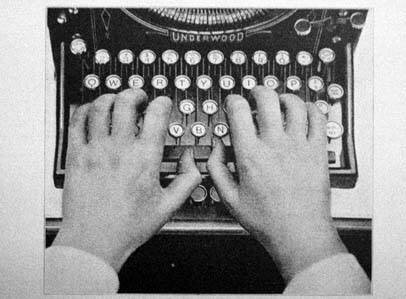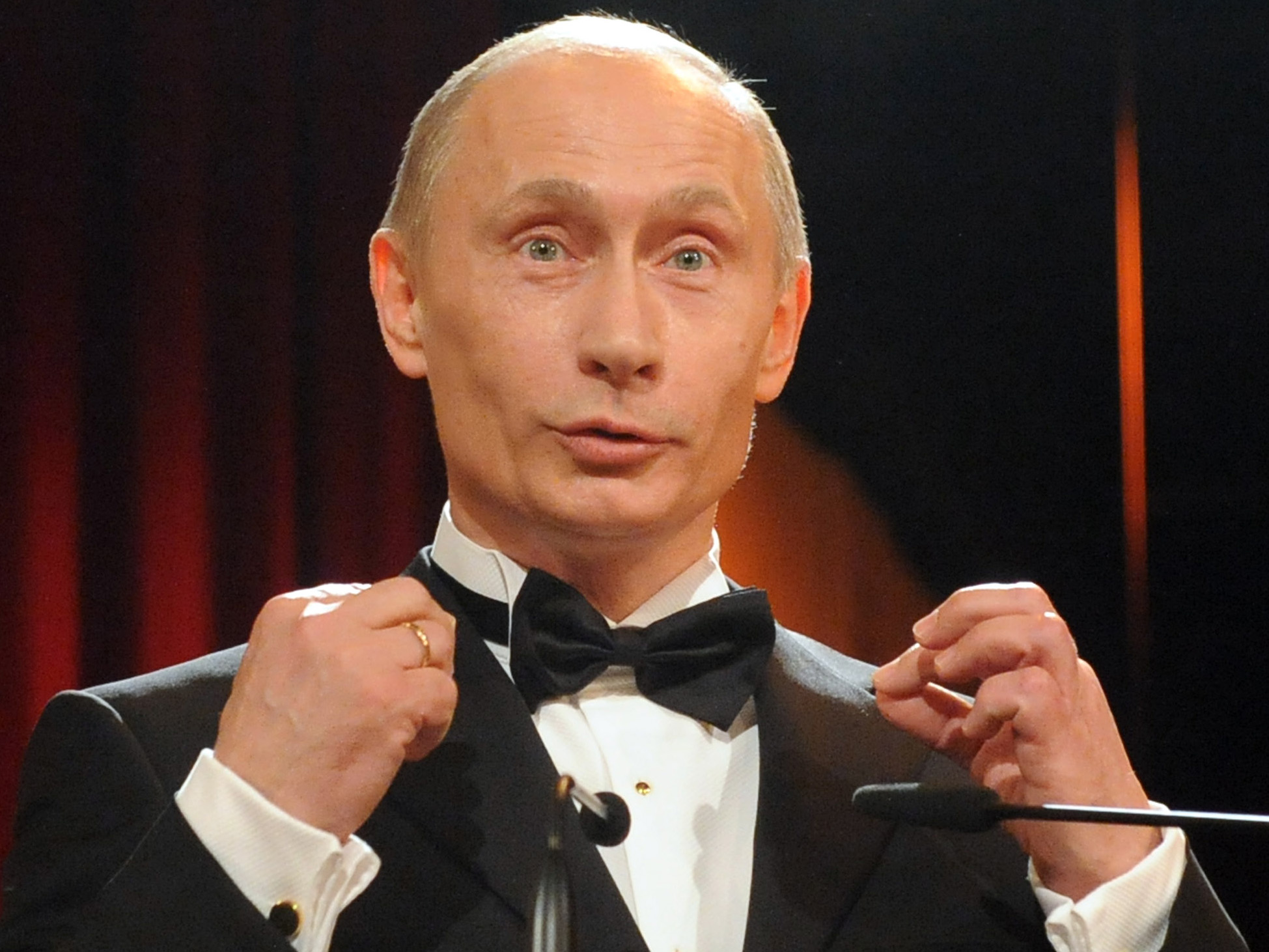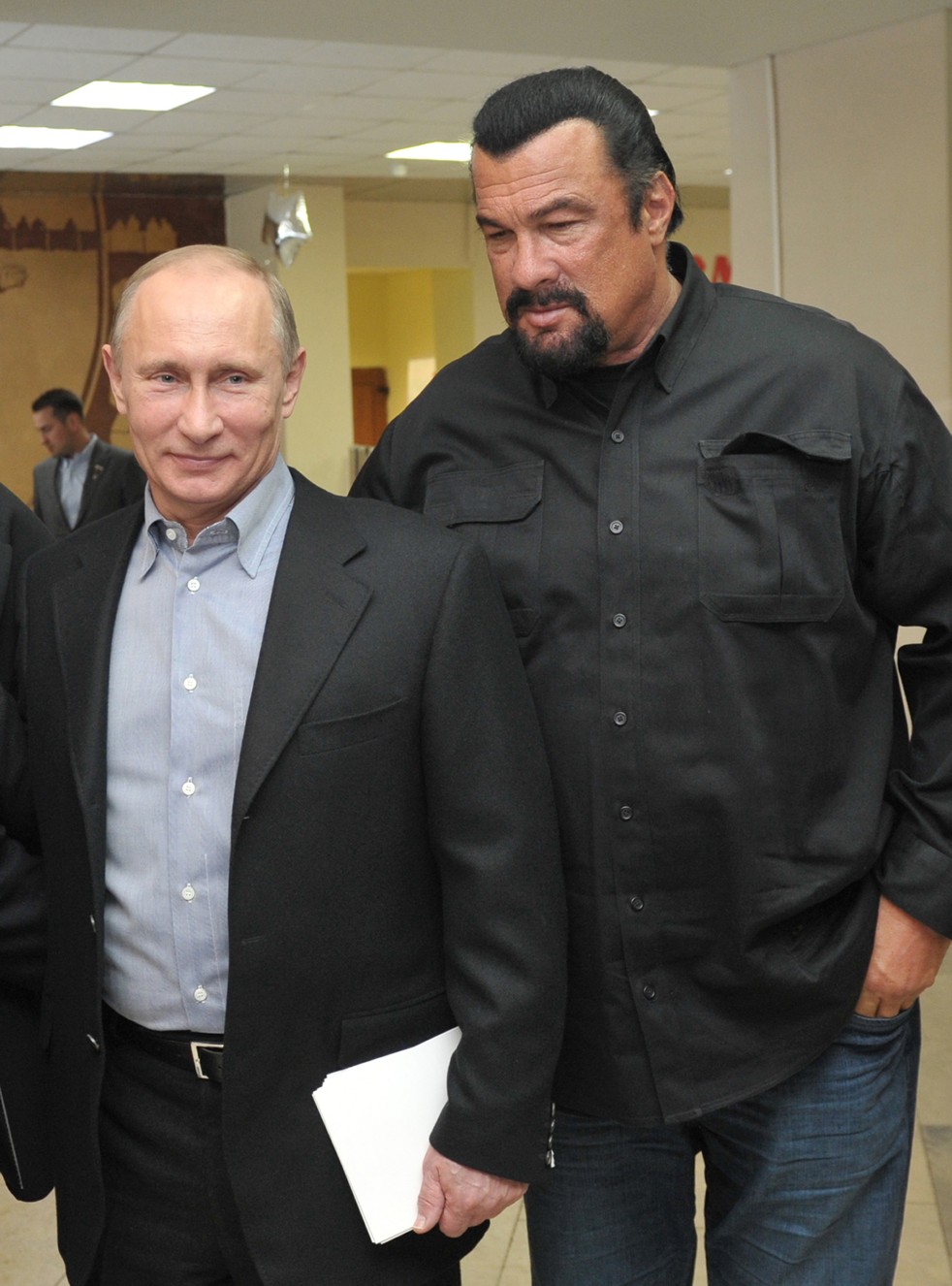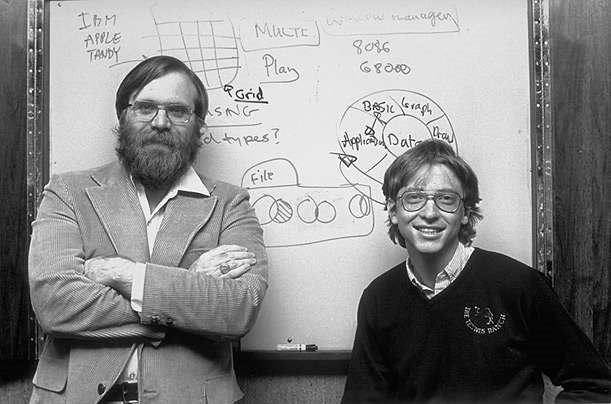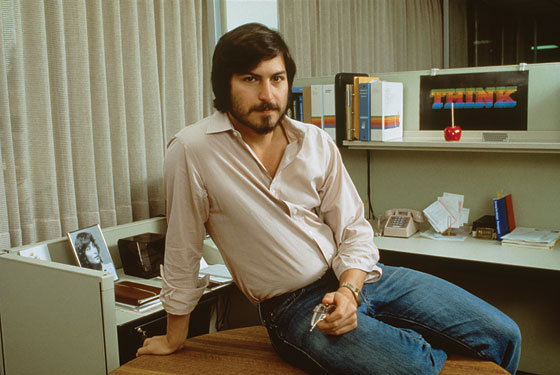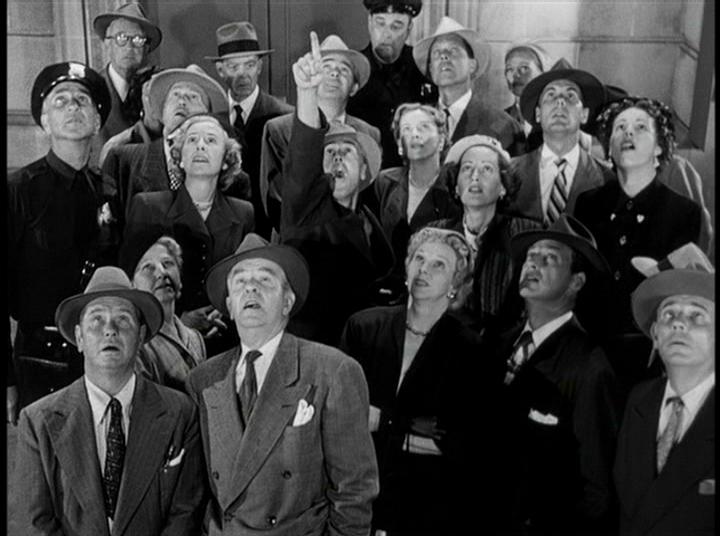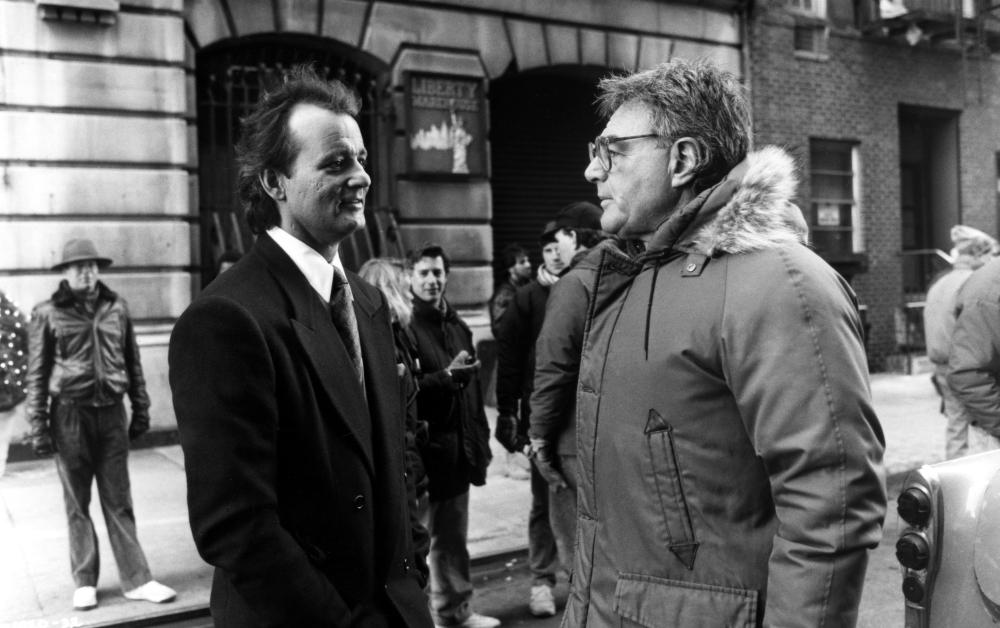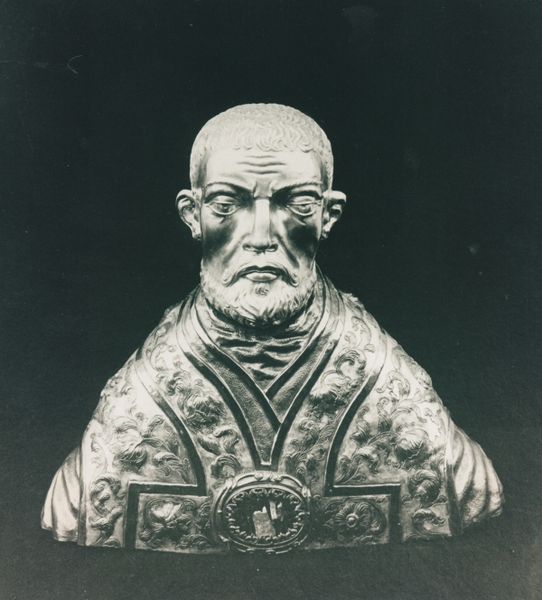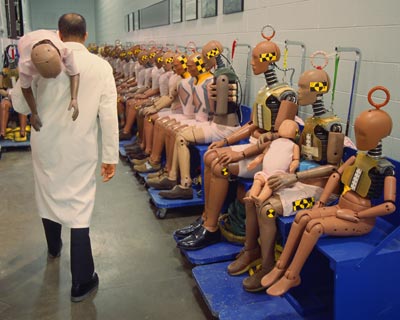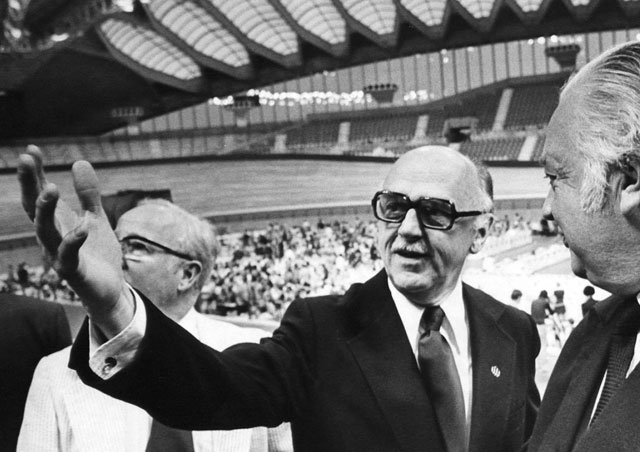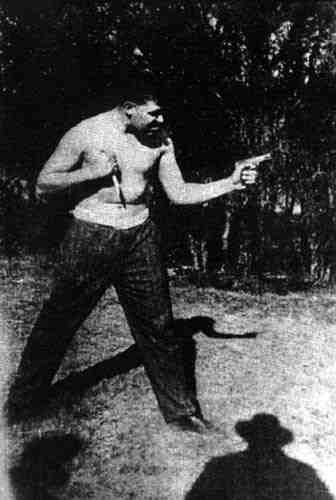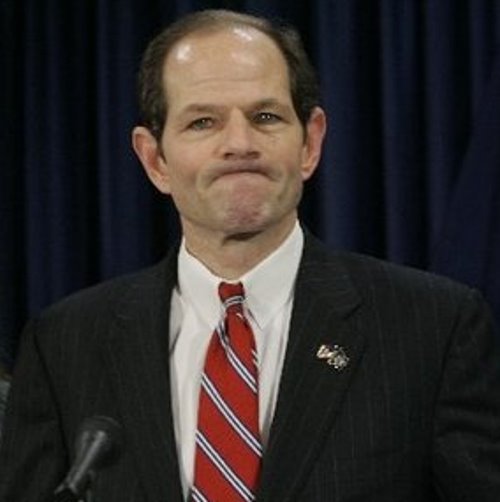This looks great. A trailer for Frank Pavich’s documentary about a mid-1970s sci-fi epic that was never made yet was influential: A pre-Lynchian adaptation of Dune by Alejandro Jodorowsky, master of hallucinogenic midnight movies and maddest hatter of them all. The film was to star David Carradine and Mick Jagger and Orson Welles and Gloria Swanson and Salvador Dali, and it was to change the hearts and minds of the young people–to start a revolution.
Tags: Alejandro Jodorowsky, Frank Pavich
Generations into the future, no one will understand why we grew so livid when athletes used PEDs because everyone will be using them–as well as next-level methods of enhancement. The Financial Times has an article full of predictions from a trio of economists about life in 2114. An astute passage from Stanford’s Alvin Roth on the subject of human progress:
“The biggest trend of future history is that the world economy will keep growing and becoming more connected. Material prosperity will increase and healthy longevity will rise. While greater prosperity will not eliminate competition, it will give people more choices about whether and how hard to compete. Many will opt for a slower track, spending more time accumulating youthful experiences. Retirement will be a longer part of life and new forms of retirement will emerge.
For those who wish to compete, there will be technological developments to help them. Some of these, such as performance-enhancing drugs, are becoming available today but are widely regarded as repugnant. That repugnance seems likely to fade.
While we may continue to cancel sporting victories won with the help of drugs, we are unlikely to resist cancer cures or software or theorems produced with the assistance of drugs that aid concentration, memory or intelligence. Safe performance-enhancing drugs may come to be seen as akin to good nutrition. Drugs may not be optional in future competitive careers. When assistant professors of economics in 2114 fall behind their expected production of an article per week, their department chair may suggest they increase their dosage of creativity-enhancing or attention-focusing drugs to increase their chance of tenure. And some drugs – memory enhancers, say – may be seen not as performance enhancers but as cures for things we did not previously think of as diseases.
Similar to the way drugs will allow us to improve our own performance, increased understanding of foetal development will allow parents to select or manipulate some of the genetic endowment of their children. Some of these options will remain repugnant even as they become more widely available, while others may come to be seen as part of careful child rearing. To the extent that these technologies are subject to legal limitations in some places but not others, they will help fuel an international market in reproductive technology. We already see the beginnings of such a market, as access to fertility treatments, and markets for eggs, sperm and surrogate wombs are more available in the US and India than in many places, drawing ‘fertility tourists.'”
Tags: Alvin Roth
10 search-engine keyphrases bringing traffic to Afflictor this week:
- ryan gosling movie drive
- jascha heifetz’s electric car
- golda meir interviewed about munich olympic murders
- old newspaper article about free love commune
- disgusting things about abraham lincoln
- typhoid mary recipe for peaches and ice cream
- kevin kelly theory that no invention ever disappears
- a black and white photo of the man who discovered king tut’s tomb
- how did doctor duncan macdougall weigh the human soul?
- the gods wait to delight in you
- Old Print Articles: When hypnotized, Edgar Cayce “became a doctor” (1910) + Tchaikovsy dies from cholera (1893).
- Featured Videos: Muhammad Ali “trains” with David Frost and Clint Eastwood (1968), spars with Howard Cosell (1972) and talks through a wired jaw to Dick Cavett (1973) + Marcel Duchamp interviewed by the BBC (1968) + Timothy Leary interviewed by Greg Kinnear (1994).
- Recently Posted on NYC’s Craigslist: Thank you, Obamacare! + Yes, you are overthinking it + There’s a chance it was written by a frustrated realtor.
- Technology and biology both bring destruction and progress.
- George Packer analyzes what the Digital Age has done to culture.
- Erik Brynjolfsson and Andrew McAfee see the Digital Age as a long-term win.
- In 1968, John C. Lilly believed we would soon communicate with other species.
- By the 1980s, Lilly was using Apple computers to “speak” with dolphins.
- Stephen Cave ponders what sets humanity apart from other species.
- David Epstein casts doubt on the genetic screening of child athletes.
- Futurist Ray Kurzweil reviews Spike Jonze’s Her.
- Bill Gates did a wide-ranging Ask Me Anything.
- For better or worse, the 1984 Games changed the Olympics forever.
- Douglas Hofstadter contends that our Artificial Intelligence isn’t so smart.
- Bill Simmons discusses film and sports with screenwriter William Goldman.
- MIT’s Alex Pentland sees Big Data as a way to direct human behavior.
- Jimmy Wales considers NSA revelations.
- Robotics may return manufacturing to the U.S., but create few jobs.
- It’s surprisingly cheap to have someone killed.
- Gene therapy is slowly moving from fiction to fact.
- A look at what happens to Olympic host cities after the Games end.
- Some Gitmo prisoners are drawing up elaborate post-prison plans.
- Vacuum magnate James Dyson wants to put a robot in every home.
- Valentine’s Day, sweet holiday that it is, had brutal origins.
- Much as we might like to deny it, good looks count.
- A brief note from 1920 about hangmen’s salary.
- A brief note from 1901 from a family reunion.
- This week’s Afflictor keyphrase searches.
Steve Ditlea, who wrote the 1981 Inc report about Apple Computers banishing typewriters from its offices, published a piece in the same publication the following year about the birth of the software industry. One of the players he mentions was Gary Kildall, a star-crossed software pioneer who was elbowed aside by Microsoft and died young after some sort of mysterious injury suffered in a biker bar in Monterrey. An excerpt from Ditlea’s article, when Kildall and others were trying to code the future:
“In 1976, Bill Gates, then 20, and Paul Allen, 23, were running a company they had started the year before in Gates’s college dorm in Boston. That same year, Gary Kildall, 34 was starting a company in his backyard toolshed in California. Tony Gold, 30, was still a credit officer at a New York City bank. Dan Fylstra, 25, was starting at the Harvard Business School. Dan Bricklin, 25, was getting ready to apply to business schools in Massachusetts, and Bob Frankston, 27, was working as a computer programmer near Boston.
All seven of these people started and now run companies that produce and/or publish software for personal computers. All five of their companies — whose combined revenues just missed $50 million in 1981 — are doubling or tripling in size each year. All of these entrepreneurs are, or soon will be, millionaires. All are likely to be the leaders of the personal-computer software industry — quoted during economic crisis, looked up to by future business-school students.
The five companies they founded have created a new industry from scratch. And now they’ve been joined by as many as 1,000 more companies offering for sale some 5,000 software programs. The pressures to stay on top in the industry are intense. Some of the biggest companies in the country have turned their attention to micro software in recent months. Professional investors are scrambling to pour millions of dollars of venture capital into the leading companies. And the independents — only a dozen or so had sales of more than $1 million in 1981 — are straining to stay out in front.
‘It’s a tremendous business to be part of,’ says Mike Belling, 32, who bought the three-month-old Stoneware Inc. in June 1980 with his partner, Kenneth Klein, 42. ‘But it has its pitfalls, like cars used to. It’s all so brand new that there’s nothing to go by yet. There’s no history to tell you how many copies of a program to produce, for instance.’
Five years ago, the micro-software industry didn’t exist.”•
Tags: Bill Gates, Bob Frankston, Dan Bricklin, Dan Fylstra, Gary KIldall, Kenneth Klein, Mike Belling, Paul Allen, Steve Ditlea, Tony Gold
The Olympics weren’t always a corporate event treated like a telenovela on TV–that began in 1984. Los Angeles Mayor Tom Bradley and IOC organizer Peter Ueberroth took a Games no one wanted and put it in the black by drowning it in corporate green. It was a financial success, though it changed the event for good. Ueberroth’s Olympic glory led him to be named Time’s “Man of the Year” and become MLB Commissioner, his five-year run marred by the collusion scandal, which not only broke the rules but was also a colossal misunderstanding of baseball economics. The opening of “The Branding of the Olympics,” Hua Hsu’s Grantland article about 1984’s changing of the guard:
“Tom Bradley liked to tell the story of how he watched the 1932 Olympics through the fence of Los Angeles’s Memorial Coliseum. He was 14 at the time, and the pageantry and spectacle of it all offered a welcome reprieve from the uncertain world around him. There was no Great Depression, no future, no worries — just these races he could still recall in startling detail nearly 50 years later. He could never have imagined that an African American might one day be mayor of this growing city and that it would be him. It could never have occurred to him that this moment of pure astonishment would become part of a story he would tell over and over — a story that would change the Games forever.
Nobody wanted the 1984 Summer Olympics.1 But the success of those Games revitalized the possibilities of such global spectacles. We take it for granted nowadays that hosting big, expensive, and complicated events like the Olympics or World Cup is a desirable thing for cities and nations. They have become ways of announcing a regime’s makeover or burnishing a national brand; at the very least, politicians and developers invoke hosting duties as an official mandate to raze like hell. In the late 1970s, though, the Olympics weren’t seen as profitable or peaceful. Violence had marred the 1968 and 1972 Summer Olympics. The 1976 Montreal Games overran their budget so drastically that the debts weren’t paid off until 2006. When it came time in 1978 to find a host for the 1984 Games, the only cities that expressed interest were Tehran — which withdrew before making a formal bid — and Los Angeles.
Taxpayers and city officials balked at Bradley’s proposal to bring the Games to L.A., especially as tales of Montreal’s financial woes began to circulate. But Bradley used that unwillingness to his advantage, agreeing that taxpayers should not have to bear the burden of the Games and floating the possibility instead that they be staged without any direct public funding. The city’s existing facilities were sufficient, and corporate sponsors could pay for whatever else needed to be built. The rest of the operating budget would come from ticket sales, television, merchandising, and licensing.
Besides the initial Games in 1896, no Olympics had been underwritten entirely by private money. And other than the 1932 Games in Los Angeles and 1948 Games in London, no Olympics had ever reported a profit.2 In 1980, Peter Ueberroth, who had been appointed to head the L.A. Olympic committee, explained to the New York Times that these Games would be the first ‘free-enterprise, private-sector Olympics, with no taxpayer money.'”
______________________________________
The 1932 L.A. Games that Bradley watched as a child:
The 1984 Games, featuring a UFO:
Tags: Hua Hsu, Peter Ueberroth, Tom Bradley
I agree with Douglas Hofstadter that today’s AI isn’t true AI because it can’t really think, but the machines we have (and are soon to have) possess an amazing utility. Erik Brynjolfsson and Andrew McAfee, authors of The Second Machine Age, believe as most do, that the near-term Computer Age will be rocky, but they’re more sanguine about long-term prospects. They see the Google Glass as half full. An excerpt from their new Atlantic piece:
“Today, people with connected smartphones or tablets anywhere in the world have access to many (if not most) of the same communication resources and information that we do while sitting in our offices at MIT. They can search the Web and browse Wikipedia. They can follow online courses, some of them taught by the best in the academic world. They can share their insights on blogs, Facebook, Twitter, and many other services, most of which are free. They can even conduct sophisticated data analyses using cloud resources such as Amazon Web Services and R, an open source application for statistics.13 In short, they can be full contributors in the work of innovation and knowledge creation, taking advantage of what Autodesk CEO Carl Bass calls ‘infinite computing.’
Until quite recently rapid communication, information acquisition, and knowledge sharing, especially over long distances, were essentially limited to the planet’s elite. Now they’re much more democratic and egalitarian, and getting more so all the time. The journalist A. J. Liebling famously remarked that, ‘Freedom of the press is limited to those who own one.’ It is no exaggeration to say that billions of people will soon have a printing press, reference library, school, and computer all at their fingertips.
We believe that this development will boost human progress. We can’t predict exactly what new insights, products, and solutions will arrive in the coming years, but we are fully confident that they’ll be impressive. The second machine age will be characterized by countless instances of machine intelligence and billions of interconnected brains working together to better understand and improve our world. It will make mockery out of all that came before.”
I think the culture is much fuller, not narrower, in this wired and connected time. The “barbarians” have finally stormed the gates, and the whole system has been decentralized. That’s a good thing. But I suppose it depends on how you define “culture.” In “Cheap Words,” George Packer’s latest New Yorker piece, he looks at the battle between Amazon and publishers over the value of books and the nature of their distribution. Toward the end, the writer makes this more macro point:
“This conversation, though important, takes place in the shallows and misses the deeper currents that, in the digital age, are pushing American culture under the control of ever fewer and more powerful corporations.”
I don’t agree with that because I’m defining “culture” differently than Packer, but the writer makes a lot of excellent points on the micro level about the great book battle, because being able to get books cheaply now is wonderful but could have future implications. An excerpt:
“Lately, digital titles have levelled off at about thirty per cent of book sales. Whatever the temporary fluctuations in publishers’ profits, the long-term outlook is discouraging. This is partly because Americans don’t read as many books as they used to—they are too busy doing other things with their devices—but also because of the relentless downward pressure on prices that Amazon enforces. The digital market is awash with millions of barely edited titles, most of it dreck, while readers are being conditioned to think that books are worth as little as a sandwich. ‘Amazon has successfully fostered the idea that a book is a thing of minimal value,’ [Dennis] Johnson said. ‘It’s a widget.’
There are two ways to think about this. Amazon believes that its approach encourages ever more people to tell their stories to ever more people, and turns writers into entrepreneurs; the price per unit might be cheap, but the higher number of units sold, and the accompanying royalties, will make authors wealthier. Jane Friedman, of Open Road, is unfazed by the prospect that Amazon might destroy the old model of publishing. ‘They are practicing the American Dream—competition is good!’ she told me. Publishers, meanwhile, ‘have been banks for authors. Advances have been very high.’ In Friedman’s view, selling digital books at low prices will democratize reading: ‘What do you want as an author—to sell books to as few people as possible for as much as possible, or for as little as possible to as many readers as possible?’
The answer seems self-evident, but there is a more skeptical view. Several editors, agents, and authors told me that the money for serious fiction and nonfiction has eroded dramatically in recent years; advances on mid-list titles—books that are expected to sell modestly but whose quality gives them a strong chance of enduring—have declined by a quarter. These are the kinds of book that particularly benefit from the attention of editors and marketers, and that attract gifted people to publishing, despite the pitiful salaries. Without sufficient advances, many writers will not be able to undertake long, difficult, risky projects. Those who do so anyway will have to expend a lot of effort mastering the art of blowing their own horn. ‘Writing is being outsourced, because the only people who can afford to write books make money elsewhere—academics, rich people, celebrities,’ Colin Robinson, a veteran publisher, said. ‘The real talent, the people who are writers because they happen to be really good at writing—they aren’t going to be able to afford to do it.'”
Tags: Colin Robinson, George Packer, Jane Friedman
From a 1981 Inc. article by Steve Ditlea that covered Apple Computers’ decision to disappear the typewriter from its desks and make space for the “office of the future”:
“Apple Computer Inc. practices what it preaches. Without fanfare, the firm has inaugurated the workplace of the future by putting its personal computers on most of its employees’ desks. The company almost eliminated typewriters, abolished the job title of secretary, and instituted a more efficient and pleasant work environment.
In a memo circulated last year, then-president Mike Scott ushered in a new age in office procedures. ‘EFFECTIVE IMMEDIATELY!! NO MORE TYPEWRITERS ARE TO BE PURCHASED, LEASED, etc., etc. Apple is an innovative company. We must believe and lead in all areas. If word processing is so neat, then let’s all use it! Goal: by 1-1-81, NO typewriters at Apple… We believe the typewriter is obsolete. Let’s prove it inside before we try and convince our customers.’
Combined with conventional data processing run on a Digital Equipment Corp. minicomputer system, the result is what one executive calls ‘the most computerized company in the world,’ a revolutionary development even by the high-tech standards of California’s Santa Clara County (a.k.a. Silicon Valley).
There are now no more than 20 typewriters left in the 2,200 employee firm. Instead of typewriters, the several hundred employees involved in composing or disseminating letters, memos, documents, or reports use a typewritersized Apple II with built-in keyboard, a pair of add-on disk drives, a video monitor, and Apple Writer, the company’s own disk-stored word processing software. Word processing has gained a foothold in many businesses, but never before has a firm so completely done away with typewriters by executive fiat. …
The Apple way is best exemplified by chairman of the board and co-founder Steve Jobs, a dark-haired 26-year-old, who in grey workshirt and slacks this particular morning could easily be mistaken for a maintenance worker. Instead he’s the holder of the largest single block of Apple stock, some 7.5 million shares worth about $163 million at recent market prices.
When Steve Jobs speaks, it is with the ‘gee-whiz’ enthusiasm of someone who sees the future and is making sure it works. He explains the decision to put an Apple computer on every desk as part of an overall desire to institute a more humane workplace. ‘Not only do our area associates have the freedom to do more rewarding, enriching tasks, they have the chance to get involved in solving problems that can ultimately affect the success of the entire company.’
As for worker fears that office automation may lead to greater unemployment, he insists the opposite is true, with personal computers opening up jobs for Apple employees.”
______________________________________________
In 1967, Walter Cronkite imagined the remote office of the future:
Tags: Mike Scott, Steve Ditlea, Steve Jobs
“Office Excitement” (short screenplay, check out excerpts)
Logline/Synopsis:
A somewhat frustrated realtor, disappointed cause of the lack of business as he deals with prospects over the phone. He drinks and gets a little crazy alone in his office. His secretary is challenged by an aggressive insurance agent. The agent gets impatient after waiting to see the realtor. He steals office supplies. He then tries selling insurance to her and after his crazy failing attempts, he literally gets kicked out of the office by both of them. And Larry, the realtor, ends the story in a strange way with a gun, scaring Judy, his secretary.
Excerpt:
LARRY
(politely)
Hi.
(smiles)
Is daddy home?…How ʼbout mommy..? OK. Go call her…I need to talk to her. . ..
JUDY
(looking through the file cabinet. He scares her at “Go” and she freezes, listening to him)
LARRY
(explodes)
Go! Get! Her!!
_________________________________
LARRY
(swings a fly swatter one good time like a baseball bat with two hands, trying to swat a fly in midair, getting him a little pissed off for missing it)
(quietly to himself)
You little bastard!
_________________________________
BATES
OK. I just simply wanted to present him a very good deal. Why donʼt you shut the fuck up and go in there and get him.
JUDY
(pissed off)
Who the hell you think youʼre talking to?!!
BATES
You talk too much. If youʼre not going to get him, sit down!!
(pushes her down in the chair)
JUDY
(canʼt believe it, as she gets up fast, loudly)
YOU BASTARD! WHAT THE FUCK YOU THINK YOUʼRE DOING?!!
BATES
(points at office door)
GET his ass the fuck OUT here or Iʼll mop you all over this fuckinʼ place!
JUDY
(backs away from him)
You sick bastard!
_________________________________
Comedy / Satire, 23 pages, PDF copy via email attachment.
[copy in screenplay format]
PayPal – $3.
From the January 9, 1920 New York Times:
“LONDON–England’s public executioners, the hangmen, want their pay increased, and their claim has been presented to the House of Commons by a member of that body. Augustine Hailwood inquired whether the Government knew that it was paying the executioners no more than in pre-war days. A Government representative replied that the matter would receive consideration.
The hangmen recently were deprived of the privilege of taking away the rope with which the criminal was hanged. This reduced one of the sources of their revenue, as the rope could be sold to curiosity collectors.”
Tags: Augustine Hailwood
Economist editors discuss how Big Data is changing human modeling, how it can be used to predict–even direct–group behavior, with MIT’s Alex Pentland, author of the new book, Social Physics. Watch six-minute video here.
Tags: Alex Pentland
Bill Murray’s interview with Charlie Rose a couple days ago was a nice complement to his recent Ask Me Anything. I thought the most interesting part was when he explained to the host how he caught “Oscar fever” at the time of Lost in Translation. Murray, of all people, being disappointed in not winning an Oscar was a disappointment in itself, so it’s great he has more perspective now.
The opening of “The Rumpled Anarchy of Bill Murray,” a 1988 New York Times Magazine article by Timothy White, which misunderstood the comic’s cerebral nature for a Zen-like one, and opens with the first-ever reunion of SNL alumni:
“AS HOLLYWOOD parties go, the one in full swing this past spring in a handsome, Georgian Revival home off Sunset Boulevard was an anomaly.
No agents circulated, no studio executives haunted the hallways. The food was lasagna and fried chicken; the beverages, Mexican beer and bottled seltzer – with the seltzer proving the more popular. Instead of dizzying references to ‘gross points,’ ‘back-end deals,’ scripts ‘in turnaround’ and multimillion-dollar movie deals, the talk concerned the fortunes of Chicago sports teams and New York rock bands, and the only ‘creative products’ under scrutiny were baby pictures.
If any aspect of ‘the industry’ was being bantered about, it was the return to the employment ranks of the party’s co-host, Bill Murray, who had, earlier that day, finished filming for Scrooged – an outlandish adaptation of the Dickens Christmas classic that will be released on Wednesday. Coincidentally, three other film comedies featuring other former Saturday Night Live regulars were then nearing completion: Coming to America, starring Eddie Murphy; Caddyshack II, starring Chevy Chase, and My Stepmother Is an Alien, starring Dan Aykroyd. To celebrate this serendipitous event, Murray and Peter Aykroyd, an actor-composer who is Dan’s younger brother, had decided on this first-time-ever gathering of Saturday Night Live alumni.
A picture of genial abandon in rumpled khakis, football jersey and sneakers, Murray was urging Dan Aykroyd, Laraine Newman and Chevy Chase to drop their ‘reserves of cool’ on the dance floor and ‘get down!’ Murray’s warmth is disarming. Chase, for instance, once considered Murray a rival, and the feeling was mutual. Murray was hired at Saturday Night Live in January 1977, just five weeks after Chase left for a movie career. The pressure Murray felt in trying to supplant his predecessor flared into backstage fisticuffs when Chase returned as a guest host for the third season of Saturday Night Live. Now, the two are thoroughly at ease with each other. Even Eddie Murphy, a Saturday Night Live latecomer whose box-office magnetism eclipses that of most of his associates, is meek in Murray’s presence.
Bill Murray is considered by his colleagues to be a man who has made peace with any private demons he might have had, someone who has brought his personal life and his career into enviable concord. Slightly disheveled and projecting what Richard Donner, the director of Scrooged, calls ‘a woolly Zen wisdom,’ Murray acts as a kind of father figure to the Saturday Night Live alumni.”
Tags: Bill Murray, Charlie Rose, Chevy Chase, Dan Aykroyd, Eddie Murphy, Laraine Newman, Peter Aykroyd, Timothy White
Douglas Hofstadter, cognitive scientist and author of Gödel, Escher, Bach, explains why Watson and Siri aren’t true AI and why the field lost its way decades ago, in a Q&A conducted by William Herkewitz at Popular Mechanics, which has a terribly designed website. The opening:
“Question:
You’ve said in the past that IBM’s Jeopardy-playing computer, Watson, isn’t deserving of the term artificial intelligence. Why?
Douglas Hofstadter:
Well, artificial intelligence is a slippery term. It could refer to just getting machines to do things that seem intelligent on the surface, such as playing chess well or translating from one language to another on a superficial level—things that are impressive if you don’t look at the details. In that sense, we’ve already created what some people call artificial intelligence. But if you mean a machine that has real intelligence, that is thinking—that’s inaccurate. Watson is basically a text search algorithm connected to a database just like Google search. It doesn’t understand what it’s reading. In fact, read is the wrong word. It’s not reading anything because it’s not comprehending anything. Watson is finding text without having a clue as to what the text means. In that sense, there’s no intelligence there. It’s clever, it’s impressive, but it’s absolutely vacuous.
Question:
Do you think we’ll start seeing diminishing returns from a Watson-like approach to AI?
Douglas Hofstadter:
I can’t really predict that. But what I can say is that I’ve monitored Google Translate—which uses a similar approach—for many years. Google Translate is developing and it’s making progress because the developers are inventing new, clever ways of milking the quickness of computers and the vastness of its database. But it’s not making progress at all in the sense of understanding your text, and you can still see it falling flat on its face a lot of the time. And I know it’ll never produce polished [translated] text, because real translating involves understanding what is being said and then reproducing the ideas that you just heard in a different language. Translation has to do with ideas, it doesn’t have to do with words, and Google Translate is about words triggering other words.
Question:
So why are AI researchers so focused on building programs and computers that don’t do anything like thinking?
Douglas Hofstadter:
They’re not studying the mind and they’re not trying to find out the principles of intelligence, so research may not be the right word for what drives people in the field that today is called artificial intelligence. They’re doing product development.
I might say though, that 30 to 40 years ago, when the field was really young, artificial intelligence wasn’t about making money, and the people in the field weren’t driven by developing products. It was about understanding how the mind works and trying to get computers to do things that the mind can do. The mind is very fluid and flexible, so how do you get a rigid machine to do very fluid things? That’s a beautiful paradox and very exciting, philosophically.”
A repost of the item that I run on or around Valentine’s Day each year that recalls the brutal and unlikely origins of the sweet holiday.
________________________
An excerpt of an article from February 14, 1884 Brooklyn Daily Eagle which explains how the charming but heathen holiday of Valentine’s Day became associated with a Christian saint, and recalls the (thankfully) lost art of the insulting “comic valentine”:
“Like many other Ecclesiastical festivals which have assumed strange social transformations, St. Valentine’s Day is chiefly remarkable for having no personal connection with St. Valentine. That respectable old bachelor bishop was beaten with clubs and beheaded in the third century, and if he is conscious of his subsequent fame he must enjoy the reflection that no author as well as no saint ever achieved such a posthumous reputation for what he had nothing to do with. The feasts of Pan and Juno, held in February, upon which among other hilarious ceremonies the names of pretty Roman girls of the period were put in a box, and the Roman dudes and greenhorns and old bachelors drew them out, suggested to the ever appropriate instincts of the Christian clergy the holding of them on a saint’s day. Poor old Bishop Valentine was in partibus at the time and had been canonized as well as clubbed and decapitated also at the middle of February, and his commemoration would do very well for the heathen pastime, which would thus acquire a Christian aroma. That is the process by which, in modern times, he has become the patron saint of postmen.
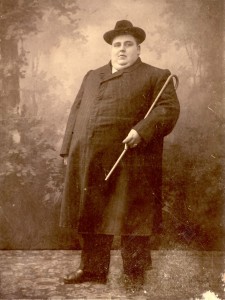
“For the antiquated maid or corpulent bachelor, the valentine is scarcely a thing of beauty or joy.”
St. Valentine’s Day has become chiefly a joy to children, who await eagerly the postman’s coming with the welcome letters which are pictures as well. For the antiquated maid or corpulent bachelor, the valentine is scarcely a thing of beauty or joy. The meanness that would gratify its petty spite by anonymous insults through the mail on this literary deluge day would not deserve mention if this morning’s newspapers had not contained a curious and perhaps fatal caution against indulging one’s venom through the valentine. Two women in Philadelphia, who were next door neighbors, mutually accused each other of sending an insulting valentine. Each denied the charge, but neither accepted the denial. They fell upon each other tooth and nail, and, not content with bites and scratches, while one ran for a hatchet the other shot her with a pistol.”
I’m personally most attracted to women who are slender and pretty–though my version of pretty might differ from yours–but I would never hire someone on that basis or give them any professional favoritism. I don’t think that’s always the case, however. I remember that when Tina Brown was the Editor-in-Chief of the New Yorker, she would comment that “cuteness” was a factor in hiring writers. Perhaps she was just making a flippant remark, but the thriving cosmetic-surgery industry suggests that many believe good-looking people enjoy an unfair advantage because of their big, gorgeous heads. The opening of “The Ugly Truth,” Jonny Thakkar’s Aeon essay which examines the underlying meaning of beauty and obesity and braces and Botox:
“The faces and forms of oppression are many, but nearly all of them flow from injustice, the treatment of people otherwise than they deserve. It’s hard to say what exactly any one person deserves, of course, but in the modern world we tend to think that desert is somehow related to what people can control. The colour of your skin is not up to you, for example, so treating you badly on its basis is oppressive. The treatment in question doesn’t have to be explicit: a society that marginalises homosexuals might not be as oppressive as one that imprisons them, but it is oppressive nonetheless. Sexuality and race are fairly obvious fault lines for oppression, as are class and gender. But if oppression is treating people otherwise than they deserve, there’s another category that tends to slip under our radar, namely the oppression of the ugly.
We don’t choose the configuration of our facial features any more than we choose our skin colour, yet people discriminate based on looks all the time. As the psychologist Comila Shahani-Denning put it, summarising research on the topic in Hofstra Horizons in 2003: ‘Attractiveness biases have been demonstrated in such different areas as teacher judgments of students, voter preferences for political candidates and jury judgments in simulated trials … attractiveness also influences interviewers’ judgments of job applicants.’ From the toddler gazing up at the adult to the adult gazing down at the toddler, we ruthlessly privilege the beautiful. The ugly get screwed.
The ancient Greeks had no problem with this. As the 19th-century Swiss historian Jacob Burckhardt remarked: ‘Not only were the Greeks most strongly affected by beauty, but they universally and frankly expressed their conviction of its value.’ At one point in Homer’s Iliad, a rabble-rousing commoner named Thersites challenges Agamemnon’s authority and is quickly clobbered by Odysseus, whose disdain for the upstart is utterly uncompromising: ‘Out of all those who came beneath Ilion there is no worse man than you are.’ What is telling is that Homer’s own description of Thersites basically substitutes ‘ugliest’ for ‘worst’:This was the ugliest man who came beneath Ilion. He was bandy-legged and went lame of one foot, with shoulders stooped and drawn together over his chest, and above this his skull went up to a point with the wool grown sparsely upon it.”•
Tags: Comila Shahani-Denning, Jacob Burckhardt, Jonny Thakkar
Garry Kasparov is the John Henry of the Computer Age, “dying” on behalf of us all in a race against a machine despite his utter confidence in the efficacy of humankind. But even before computers were in the room, Bobby Fischer was likewise defeated by a machine, and it was him, the string of code he possessed off by just a little, just enough. He could make plans, but he didn’t plan on a ghost in the machine. There was only one person Fischer couldn’t beat, and it was himself. The opening of Ralph Ginzburg’s 1962 Harper’s article, “Portrait of a Genius As a Young Chess Master“:
“RUSSIA’S traditional hold on World Championships in chess is about to be challenged by the United States in the person of an eighteen-year-old boy from Brooklyn named Bobby Fischer. Bobby has been United States Chess Champion for four years. He won the title at the age of fourteen, the youngest player ever to do so. He has since successfully defended his title three times and has won virtually every major chess title in the country.
In an international tournament at Bled, Yugoslavia, last summer, he astonished the chess world by defeating Russia’s Mikhail Tal in his only game against this former World Champion. The present World Champion, Mikhail Botvinnik, did not participate in the tournament. Fischer is aching to play Botvinnik. ‘I know that I deserve to be World Champion and I know I can beat Botvinnik,’ he has said. ‘There’s no one alive I can’t beat.’
Fischer may have his chance early in 1963 when the triennial chess World Championship will be played. He will first have to win two preliminary international tournaments, the Inter-Zonal and the Candidates, in 1962. Many of America’s leading chess authorities agree with Lisa Lane, the twenty-four-year-old Women’s Chess Champion of the United States. ‘I’m sure that Bobby can beat Botvinnik,’ she has said. ‘There’s never before been a chess player with such a thorough knowledge of the intricacies of the game and such an absolutely indomitable will to win. I think Bobby is the greatest player that ever lived.’
John W. Collins columnist for Chess Life and Chess Review and one of the country’s most highly respected chess annotators, has written: ‘Bobby is the finest chess player this Country ever produced. His memory for the moves, his brilliance in dreaming up combinations, and his fierce determination to win are uncanny. Not only will I predict his triumph over Botvinnik but I’ll go further and say that he’ll probably be the greatest chess player that ever lived.'”
The opening of Ray Kurzweil’s compelling review of the Oscar-nominated Her, a near-future film he sees as nearer than most do:
“Her, written, directed and produced by Spike Jonze, presents a nuanced love story between a man and his operating system.
Although there are caveats I could (and will) mention about the details of the OS and how the lovers interact, the movie compellingly presents the core idea that a software program (an AI) can — will — be believably human and lovable.
This is a breakthrough concept in cinematic futurism in the way that The Matrix presented a realistic vision that virtual reality will ultimately be as real as, well, real reality.
Jonze started his feature-motion-picture career directing Being John Malkovich, which also presents a realistic vision of a future technology — one that is now close at hand: being able to experience reality through the eyes and ears of someone else.
With emerging eye-mounted displays that project images onto the wearer’s retinas and also look out at the world, we will indeed soon be able to do exactly that. When we send nanobots into the brain — a circa-2030s scenario by my timeline — we will be able to do this with all of the senses, and even intercept other people’s emotional responses.”
Tags: Ray Kurzweil, Spike Jonze
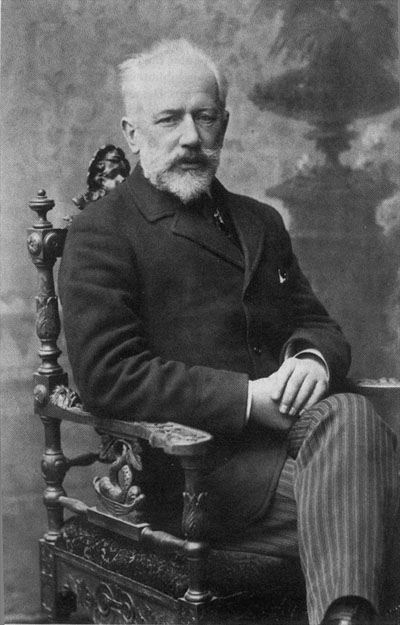
“Tchaikovsky contracted cholera by drinking unboiled water in a restaurant.”
To put it crudely, Pyotr Ilyich Tchaikovsky, one of humankind’s most refined composers, died because he drank water that had shit in it. We’re all a glass of shitwater, or something equally horrible, from death, even the best of us. Such is life: Luck plays a bigger role than we’d like to admit.
The announcement of Tchaikovsky’s death by cholera in the November 7, 1893 New York Times, which spells his name in a variety of ways, includes a passage about the Russian master’s visit to America. The opening:
“ST. PETERSBURG–Pierre Tschaikowsky, the Russian composer, died in this city last night. He died of cholera, hours after he fell ill.
Tchaikovsky contracted cholera by drinking unboiled water in a restaurant.
________________
A cable dispatch from St. Petersburg brings the unexpected news that Peter Ilitsch Tschaikowsky is dead. This famous Russian musician was without much question the most strikingly original and forceful composer of the day, and his death at a time when his intellectual powers were, or ought to have been, at their maturity must be accounted a serious loss to music. The present is by no means richly productive in great orchestral works, and Tschaikowsky’s masterpieces have the hallmarks of real genius. If he had lived he would surely have given the world new works which it would have received with great gladness.
Tschaikowsky was the son of an engineer who held a post under the Government in the imperial mines of the Ural Mountain district. The musician was born at Wotkinsk, in the Province of Wlatka, on April 25, 1840. Like not a few other composers, the boy was not intended by his parents to follow in the footsteps of Glinka. He received his early education in the schools of his native place. In 1840, however, his father who was evidently a man of solid attainments, was appointed Director of the Technological Institute at St. Petersburg. In that city the son was entered as a student in the School of Jurisprudence, which is open only to the sons of Government officials of the higher orders. It was the father’s desire that the boy should enter the public service, and in 1859, when he had completed his course of study, he was appointed to a post in the Department of Justice.
In the meantime his love for music had declared itself, and while a law student he had made essays in composition. These attempts met with not a little opposition from his father, and for a time young Tschaikowsky’s musical studies were abandoned. But music eventually prevailed over law, and the consent of the father to his devotion to the study of composition was at length obtained. It was fortunate for Tschaikowsky that the great movement for the advancement of music in Russia had now begun. In 1862 Anton Rubinstein, the famous pianist and composer established his now celebrated Conservatory of Music at St. Petersburg. Tschaikowsky was one of the first of the institution’s many gifted pupils.
He devoted himself diligently to study until 1865. His principal masters were Zaremba, who taught him harmony and counterpoint, and Rubinstein, who taught him composition. In 1865 he was graduated with high honors, receiving a prize medal for his setting of Schiller’s ode, ‘An die Freude,’ of which he made a cantata. The composition.is not found among his published works.
In 1866 Nicolas Rubinstein, then the head of the conservatory, offered his the post of Professor of Harmony, Composition, and the History of Music. As his heart was in the Russian musical movement, he accepted the chair, and for twelve years did admirable work as an instructor. In 1878 he resigned his position in order to devote himself more assiduously to composition, in which he had already gained enviable distinction. He lived at various times in St. Petersburg, Italy, Switzerland, and Kiev. In recent years he had made his home at the last-named place, which is near Moscow.
Two years ago last May Tschaikowsky, at the invitation of Walter Damrosch, an enthusiastic follower and performer of his works, visited America, and appeared in the series of festival concerts with which the Music Hall, at Fifty-seventh Street and Seventh Avenue, was opened. The composer conducted his splendid third suite, his second piano concerto, in G, Opus 44, and two a capella choruses. The magnificent performance if the suite by the Symphony Orchestra under his electric leadership will long be remembered by music lovers, as will also also by Miss Aus Der Ohe’s playing of the piano concerto. The composer subsequently visited other cities, and was everywhere received with enthusiasm. …
Tschaikowsky was a prolific composer for a modern master, yet given to somewhat close self-criticism. Only three or four years ago he threw into the fire the score of his early ballet, ‘Wojowode,’ produced in 1860.”
Tags: Adele Aus der Ohe, Anton Rubinstein, Mikhail Glinka, Nicolas Rubinstein, Nikolai Zaremba, Peter Tchaikovsky, Pyotr Ilyich Tchaikovsky, Walter Damrosch
After a steep decline in manufacturing, the U.S, has an opportunity to drive the future of the sector. But there’s a catch: You and I may not be necessary. The rapid growth of robotics in America may largely close factories to human hands. We’ll be richer in the aggregate, but those riches will not be distributed very much to workers. Good in the long run but not so much now. From Amar Toor at Verge:
“Some see automated manufacturing as a potential boon for the US economy, a way to lure companies back to American soil with the promise of higher productivity and lower labor costs. But others fear that the push could displace the last vestiges of middle-class American manufacturing workers at a time of high unemployment and soaring inequality.
‘The pace and scale of this encroachment into human skills is relatively recent and has profound economic implications,’ MIT economists Erik Brynjolfsson and Andrew McAfee wrote in their 2011 book Race Against the Machine. In the book, the authors argue that technology has destroyed more American jobs at a faster pace than it’s created new ones, leading to higher unemployment and stagnant median incomes despite higher productivity levels. Although they conclude on an optimistic note, arguing that technological change will yield benefits in the long run, Brynjolfsson and McAfee say its short-term effects could be devastating for American workers.”
Tags: Amar Toor, Andrew McAfee, Erik Brynjolfsson
Thinking about the impact of the Olympics on host cities reminds me of Frank Deford’s great 1970 Sports Illustrated profile of then-Montreal mayor Jean Drapeau whose unwavering will brought a subway system, a World’s Fair, Major League Baseball and, yes, the Olympics to his city. It should be noted, however, that the construction of the Olympic buildings was bungled horribly and cost overruns left the citizens indebted for three decades. The opening:
“One bright day in the summer of 1970, shortly after Montreal had obtained the 1976 Olympics but in the months just before the city annexed Vermont and then acquired the Vatican to place up on Mont-Royal (the Orange Bowl, after all, seemed so lonely up there with only the Bolshoi Ballet and the Ganges River for company), the mayor of Montreal sat in City Hall and faced down another skeptic. This he does with aplomb, for it is a whole world of skeptics that the mayor endures, and thus he has much practice in the endeavor. The mayor’s working philosophy is: ‘Problems are solved en route,’ and, of course, since Vietnam this is not the most popular mode of operation everywhere. The mayor is not deterred.
Having warmed up at some length, he waves for effect and declares: ‘The Olympics will do even more for Montreal than Expo ’67. Seventy-six is only a target, and we won’t stop. Seventy-six is the means, not the end. Sixty-seven was just taking us into orbit, but the Olympics will take us to the moon [he waves], to Mars! I feel it! I feel it! And I’m not wrong when I feel as strongly as this. There is no challenge too big for Montreal, because, like the Olympics, we are acting with the spirit of Baron de Coubertin, we are acting in a humanistic way. The city possesses an environment, an ambience that can be felt. ‘Montreal is en route to becoming The City of the world. Twenty years from now, no matter what happens, it will have achieved this position, and it will be referred to in all parts of the world as The City.’
Now make no mistake, the mayor of The (incipient) City is a politician. His office is testament to that. There is the portrait of Queen Elizabeth juxtaposed with a crucifix. There are the flowers that adorn the room in bunches, while nestled among them is the mayor’s 125-pound bull mastiff, Due, whose elegiac face does not betray the fact that he could eat for lunch, if he were so disposed, all the flowers, the artifacts and the entire Quebec separatist movement. But if the symbols around the man add up to a balanced display, there is no compromise in the mayor. Charles Bronfman, vice-president of Seagrams, Ltd. and chairman of the baseball Expos, observes: ‘However much he sounds it, the mayor is never a huckster. He is altogether sincere. He has drives that are unusual and dreams that others of us cannot understand.’
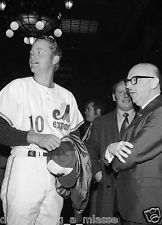 This means that when the mayor says Montreal is going to sprint ahead and leave crossroads like Paris and New York back with Terre Haute, he is not putting you on. He means it. Also, all those enigmatic celestial references to the Olympics are not being emitted just for florid effect. It is worth recalling that at about this same point in the planning stage for Expo ’67, the mayor had already decided to make a permanent exposition of it—though he neglected to let anyone else in on this revelation for some time. Expo ’67 is now Man and His World and is still drawing people to Montreal.
This means that when the mayor says Montreal is going to sprint ahead and leave crossroads like Paris and New York back with Terre Haute, he is not putting you on. He means it. Also, all those enigmatic celestial references to the Olympics are not being emitted just for florid effect. It is worth recalling that at about this same point in the planning stage for Expo ’67, the mayor had already decided to make a permanent exposition of it—though he neglected to let anyone else in on this revelation for some time. Expo ’67 is now Man and His World and is still drawing people to Montreal.
After a certain amount of watching His Honor, one instinctively recalls what Cassius Clay used to say after various correct predictions: ‘If I tell you a fly can pull a plow, hitch him up.’ The mayor brought a world’s fair to Montreal in record time after Moscow reneged on the project. He lured major league baseball into expanding outside the U.S., and happily watched the team prosper and even play well amid predictions of financial and artistic calamity. He took the Olympics away from the U.S. and Russia and left another world power, personified by Charles de Gaulle, put down in a stunning speech after De Gaulle had suggested French Canada might want to, more or less, separate itself from Canada. He built a cultural palace and a subway system in a world where nobody constructs anything that lasts. With a sprinkle of flowers and trees on almost every street, he encouraged a greenhouse of a town to bloom in a place that had been another kind of house for the whole Western world.
The mayor’s name is Jean Drapeau.”
Tags: Frank Deford, Jean Drapeau
When happens to the tent when the circus leaves town, especially if it’s the greatest show on Earth? The Olympics are a mixed blessing locally because they promise massive infrastructure improvements in only a few years, but they also can indebt a host city, displace citizens and cause environmental damage. And the march of history (e.g., war) can quickly undo any of the good, make something grotesque from it. Jon Pack and Gary Hustwit of the Olympic City Project photograph hosts years after the Games are over to see what the event has wrought. A couple of exchanges from an Ask Me Anything they just did at Reddit.
______________________
“Question:
In your opinion, are the Olympics have a positive or negative long-term effects on the cities hosting it?
Jon Pack and Gary Hustwit:
That a complex question, because it really depends on your point of view. Barcelona’s 1992 Olympics is held up as having a positive effect on the city, since they were able to redevelop the waterfront area and turn the beach into a huge tourist draw. They were also able to do 30 years of planned infrastructure improvements in 5 years, using the Games as the impetus. But there are many citizens who were displaced by the new development there, or complain that the improvements are really just for the sake of tourism, their rents are higher now, etc.
Every city/country has their own reasons for hosting the Olympics, some just want to prove they can do it, that they’re a global city. For some it’s a public relations move (how many of us had heard of Sochi before this year? In the project, we’ve tried not to express an opinion one way or the other, if it’s positive or negative, but try to give a feel for what these cities are like now, a few years or decades after the Games.
______________________
Question:
I’ve been to the Sarajevo site, which is pretty disturbing; tons of the open spaces were used for graves during the war in the 90s, and everything else is practically falling apart.
Which city, in your opinion, has done the best job of reusing and refurbishing former olympic sites?
Jon Pack:
Yes, Sarajevo is an especially sad case. It’s impossible to separate the Games’ legacy from the war. Most of the Olympic structures were destroyed or damaged significantly. But I found the people to be amazingly resilient; almost everyone would tell me a harrowing story of that time and then follow it up with a dark joke. When I was there in the summer, I found most of the sites being used in some way. The bobsleigh track had some picnickers, skaterboarders and tourists around, for instance. The Igman ski jumps sat in ruins, but the base was full of campers playing football. It seems like they may not have the money to rebuild the sites, but they’re making the best of it.
Gary Hustwit:
There are plenty of interesting re-uses of Olympic sites in different cities, I don’t think I could say any one city has done it all well. But we’ve seen some bizarre ones. Lake Placid couldn’t get federal funding to build athlete housing for the ’80 Winter Games, but the government would fund a new prison. So they built a prison, housed the athletes and officials in it, and after the Games were over the prisoners moved in. It’s still a working prison today.”
Tags: Gary Hustwit, Jon Pack
I know lots of folks in the New York media world, so there’s at least a half-dozen people I’d like to punch right in the face. But for those of you looking to up the ante, there’s a bargain to be had. From “How Much Does a Hitman Cost?” at Priceonomics:
“In 2003 researchers at the Australian Institute of Criminology dug through a decade’s-worth of old newspaper records, undercover police operations, and homicide databases to study the price and motivations of hiring a hitman.
According to this study, the average payment to a hired killer was about $15K (converted to US dollars) and over half of all hitmen got less than $9K for their services.”
She asked me to pay for her cab fare – 35 (West Village)
Is asking for cab fare after a web hook up weird …. the idea of giving someone i just had sex with money no matter how much would be considered paying for sex. Does that make me her john?
Am I overthinking it?
If we were at a bar and took a cab I would most likely pay for it anyway or I would buy her drinks it would be money well spent…. Even if there was never a hook up etc….
We have hooked up a few times and she asked each time and so far I have obliged but the thought lingers….
Just wondering if this is common and a small amount of money for cab fare <$15 is OK.
Genes introduced into the body via virus or other means to repair other damaged genes is now a reality in some cases. How quickly can the field progress? Will there be a boom period of exponential growth? When will such methods be able to treat simple aging rather than mutations? I think we’ll be waiting awhile. The opening of a new Economist article:
“IT SOUNDS like science fiction, and for years it seemed as though it was just that: fiction. But the idea of gene therapy—introducing copies of healthy genes into people who lack them, to treat disease—is at last looking as if it may become science fact.
The field got off to a bad start, with the widely reported death of an American liver patient in 1999. In 2003 some French children who were being treated with it for an immune-system problem called SCID developed leukaemia. Since then, though, things have improved. Indeed one procedure, for lipoprotein lipase deficiency (which causes high levels of blood fats, with all the problems those can bring), has been approved, in Europe, for clinical use.
The most recent success, announced last month in the Lancet, was of an experimental treatment for choroideremia, a type of blindness. This is caused by mutation of the gene for a protein called REP1. Without REP1, the eye’s light receptors degenerate. Robert MacLaren of Oxford University used a virus to deliver working versions of the REP1 gene to the most light-sensitive part of the retina. Five of the six participants in the trial duly experienced an improvement in their sensitivity to light. Two were so improved that they could read more letters than previously on a standard eye chart.”



